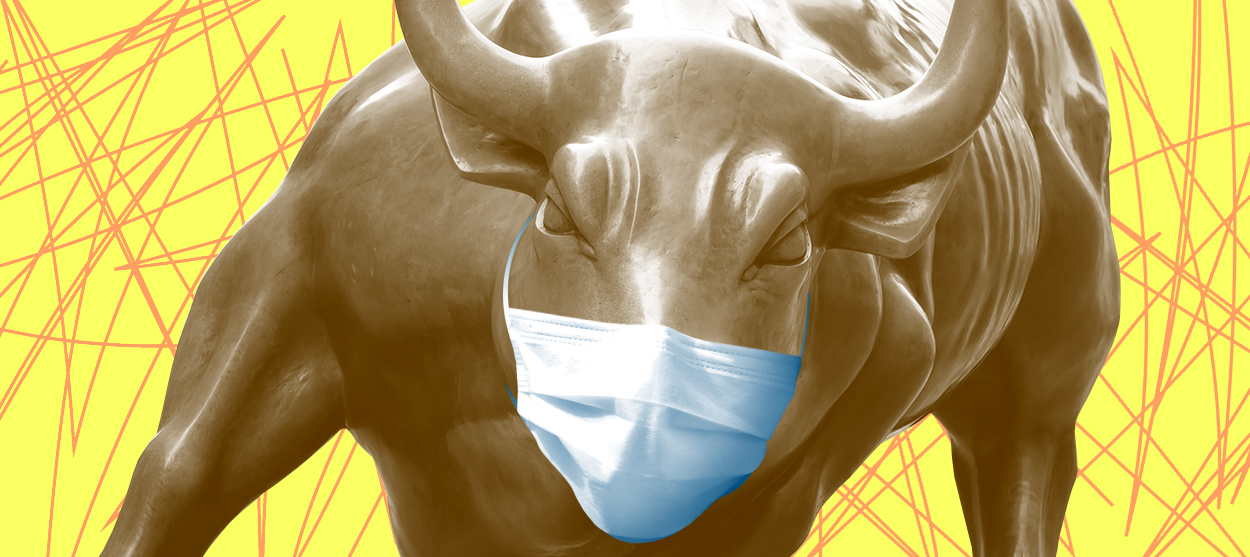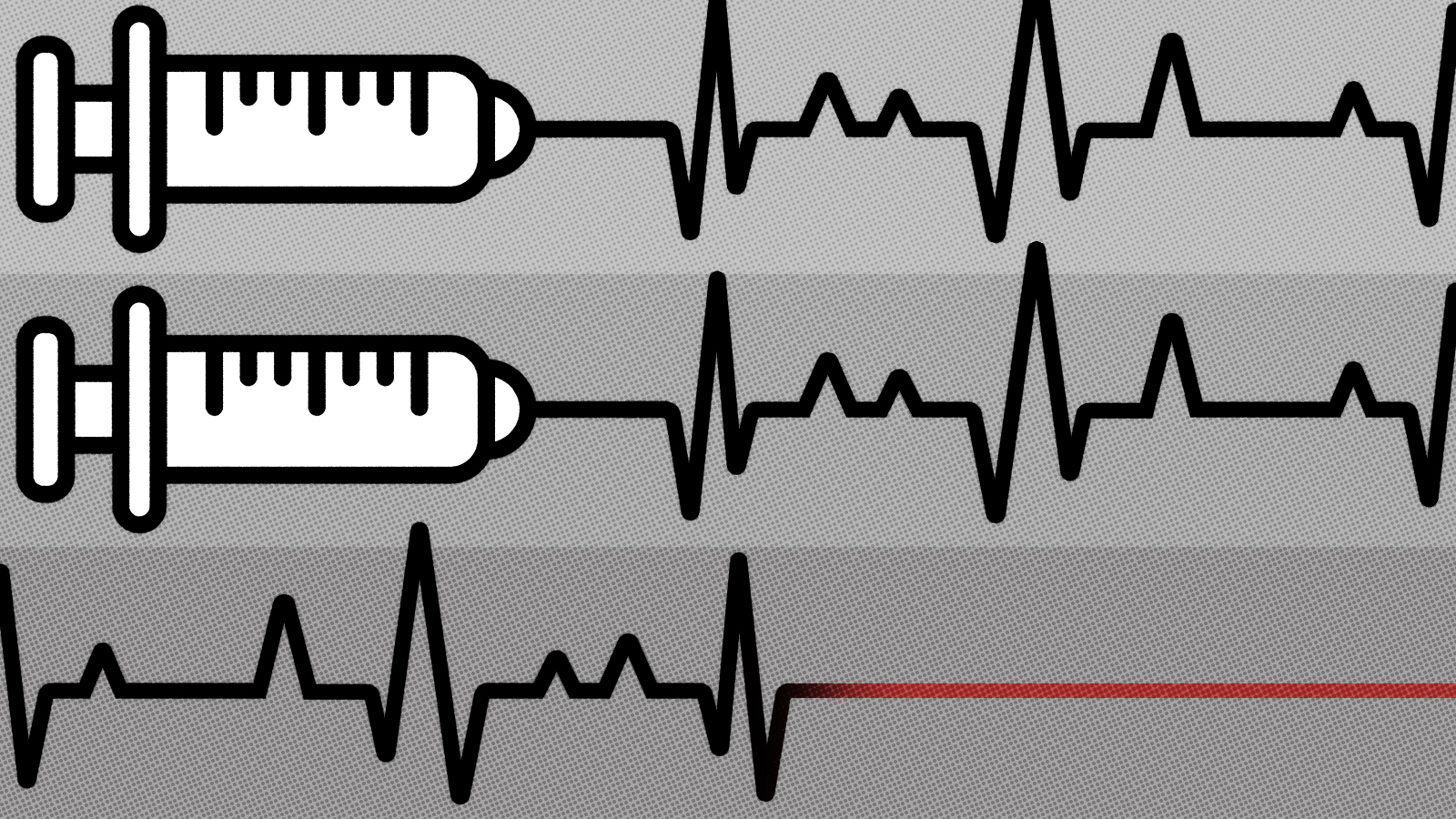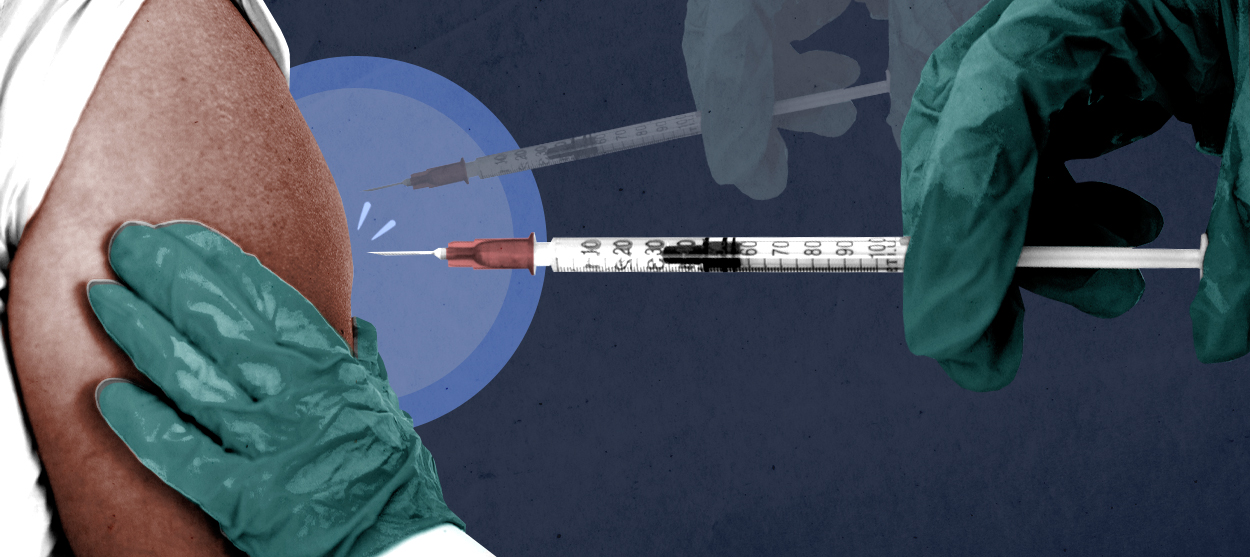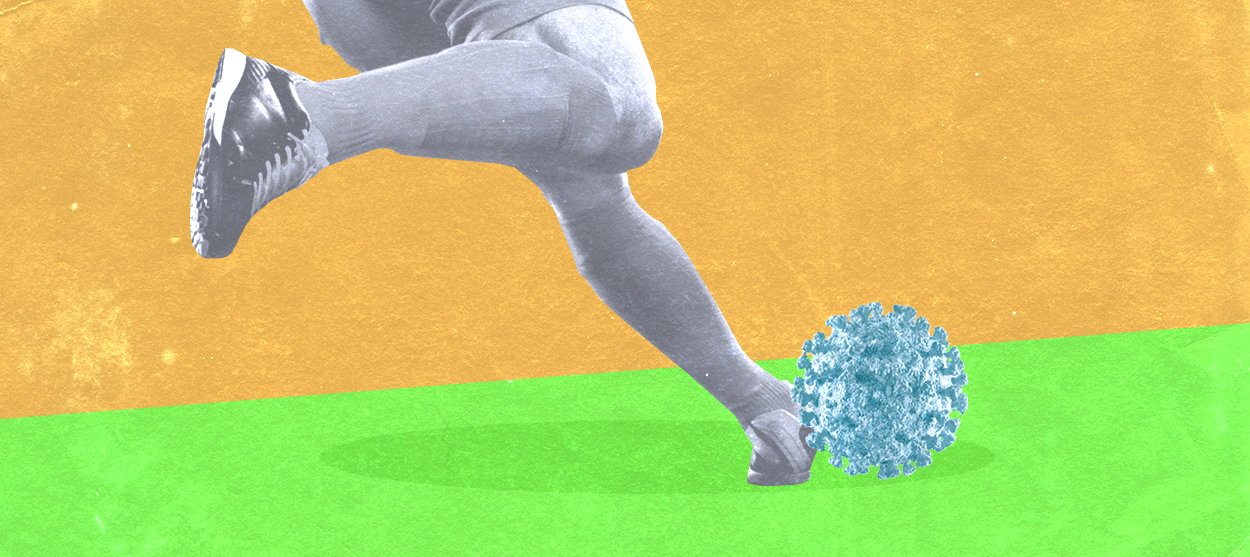The coronavirus recession?
How bad could this get?


A free daily email with the biggest news stories of the day – and the best features from TheWeek.com
You are now subscribed
Your newsletter sign-up was successful
It was clear earlier this month that the coronavirus outbreak could severely damage the global economy.
On Feb. 12, I wrote that American and Chinese demand had been sustaining the world economy for the last few years, and if China were shut down due to the virus, the ripple effect through global supply chains could drag down the rest of world with it. And sure enough, this week began with news of how the disease is throttling trade flows in and out of China.
Technically called COVID-19 ("coronavirus" actually being the name for a whole family of viruses), the disease has now infected at least 77,150 people in China, with 2,592 deaths. On Monday, stock markets plunged on news that new and rapidly spreading outbreaks are now popping up in South Korea, Iran, and Italy. The Dow Jones dropped 3.5 percent — or 1,000 points — the S&P 500 fell 3.7 percent, and the Nasdaq plunged 3.7 percent.
The Week
Escape your echo chamber. Get the facts behind the news, plus analysis from multiple perspectives.

Sign up for The Week's Free Newsletters
From our morning news briefing to a weekly Good News Newsletter, get the best of The Week delivered directly to your inbox.
From our morning news briefing to a weekly Good News Newsletter, get the best of The Week delivered directly to your inbox.
The possibility of the virus spreading across the world is certainly unnerving. And while the World Health Organization has so far avoided declaring the disease an official pandemic, the organization did say it has "pandemic potential." But we don't even need to posit a pandemic to see how the virus could tank economies around the world.
An example: Reliable trade data out of China is hard to come by, but a Boston company named CargoMetrics has been trying to keep tabs. Their data covers not just shipping traffic but how full the cargo vessels are. And their index shows a 27 percent decline in Chinese imports from Feb. 7 to Feb. 17 — a massive deviation from the average trend in prior years. Dry cargo imports — things like metals, ores, grains, wood, coal, and steel products — are down 40 percent.
China's imports "are totally in freefall," as CargoMetrics' CEO Scott Borgerson put it. Basically, over the last month, the country has bought way less stuff from the rest of the world than normal. And while China's exports to the rest of the world aren't suffering quite as badly, the situation is still "ugly," and down from the historical trends.
At this point, it is well-known that major players like Nike, Hyundai, Apple, and General Motors are having to curtail some operations, because they rely on Chinese manufacturers for goods and parts. But smaller businesses are getting hit, too. Everyone from shoe and blue jean manufacturers, to electric bicycle makers and outdoor fireplace suppliers and 3D printed toymakers for children are feeling the pinch, as imports from China they depended on suddenly dry up — in some cases, forcing them to switch to other Asian suppliers that are now shutting down as well, in fear of the spreading disease. In a particularly unpleasant irony, there are roughly 150 prescription drugs — "antibiotics, generics, and some branded drugs without alternatives," according to Axios — that may well experience shortages because of how dependent we are on Chinese manufacturers to produce them. Even the fashion industry is not immune. And it's the same story in other countries that rely on China for their supply chains, from Australia to Japan.
A free daily email with the biggest news stories of the day – and the best features from TheWeek.com
"The second-largest economy in the world is completely shut down. People aren't totally pricing that in," Larry Benedict, CEO of The Opportunistic Trader, told CNBC. According to the New York Times, an analysis from JPMorgan concluded that "the immediate impact of a large China demand and supply shock will be substantial." China's own President Xi Jinping called the coronavirus a "crisis," as the country reneged on its earlier plans to ease travel restrictions out of the city of Wuhan, an epicenter of the outbreak.
The basic problem is that the way to contain a disease is to prevent people from traveling and from interacting in large groups. Which is not limited to, but certainly includes, keeping them from working — many factory employees in China, for example, remain stuck at home and unable to commute to work. "Because the remedies are extreme, even small risks of infection and of death can have a drastic effect on economic activity," as economist Olivier Blanchard put it.
And there's no way "stimulate" a country out of this situation: China has announced various efforts to prop up its economy, from a hose of new loans to keep companies afloat to a raft of new tax breaks. But no amount of money can compensate a business model when workers literally aren't allowed to go to work.
The good news is that, in an already-depressed world economy, economic stimulus can increase demand throughout the world in the places that haven't been physically hit by the virus yet, and that could at least provide a cushion as supply chains transition.
Beyond that, the global economy's best hope is that the virus can be contained relatively soon. The growth of new cases of COVID-19 in China actually peaked earlier this month, according to World Health Organization data. And in China itself, six provinces that were more or less shutdown have relaxed their emergency ratings, and are allowing companies to bring their workers back in. (The problem is that it's hard to know precisely what to make of this given given how untrustworthy the Chinese government has proven itself to be.) Experts also predict world economic growth will slow to a measly 1 percent this quarter, but recover soon after.
Of course, all that depends on virus peaking already or soon. Given the outbreaks in Italy and elsewhere, that doesn't sound like a safe bet.
There's no way to predict the future in a situation like this. But if the outbreak grows around the world while continuing to drive the Chinese economy into the ground, it's not hard to see how the world's already-limping economic growth could go negative. In which case, we've got a coronavirus recession on our hands.
Jeff Spross was the economics and business correspondent at TheWeek.com. He was previously a reporter at ThinkProgress.
-
 Why are election experts taking Trump’s midterm threats seriously?
Why are election experts taking Trump’s midterm threats seriously?IN THE SPOTLIGHT As the president muses about polling place deployments and a centralized electoral system aimed at one-party control, lawmakers are taking this administration at its word
-
 ‘Restaurateurs have become millionaires’
‘Restaurateurs have become millionaires’Instant Opinion Opinion, comment and editorials of the day
-
 Earth is rapidly approaching a ‘hothouse’ trajectory of warming
Earth is rapidly approaching a ‘hothouse’ trajectory of warmingThe explainer It may become impossible to fix
-
 Do unvaccinated COVID patients deserve scarce care? A doctor weighs in.
Do unvaccinated COVID patients deserve scarce care? A doctor weighs in.The Explainer Justice, judgment, and the last ICU bed
-
 How to vaccinate the anti-vaxxers
How to vaccinate the anti-vaxxersThe Explainer Instead of blaming people for not doing the right thing, let's focus on eliminating the obstacles to vaccination that still remain
-
 The U.S. could double its COVID-19 vaccine availability overnight. What's the holdup?
The U.S. could double its COVID-19 vaccine availability overnight. What's the holdup?The Explainer How the FDA could approve a more efficient vaccine rollout
-
 The October Surprise nobody wanted
The October Surprise nobody wantedThe Explainer Trump has COVID-19. Really, 2020?
-
 Life is worth living
Life is worth livingThe Explainer What's driving America's rising suicide rate?
-
 Social workers are masters at de-escalation. Here's what the police can learn from them.
Social workers are masters at de-escalation. Here's what the police can learn from them.The Explainer Knowing how to peacefully resolve conflict, rather than exacerbate it, can save lives
-
 Settling in for the long pandemic
Settling in for the long pandemicThe Explainer Life won't be back to "normal" anytime soon
-
 Sports reveal how much America is trailing the rest of the world
Sports reveal how much America is trailing the rest of the worldThe Explainer MLS and other American leagues are stumbling through their pandemic restart plans
